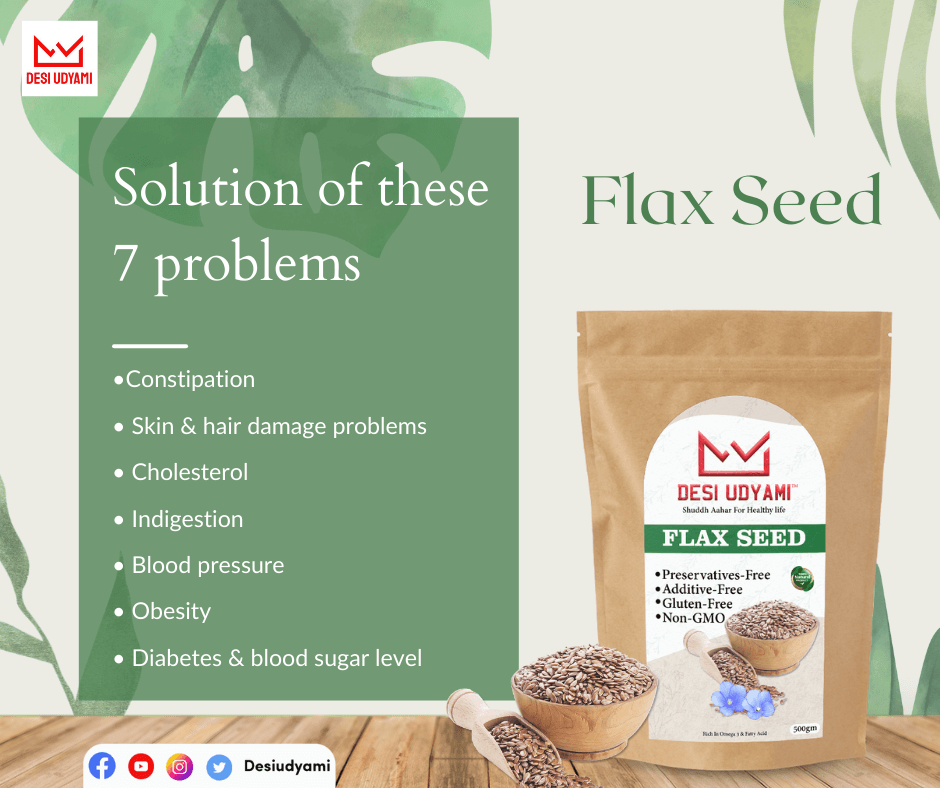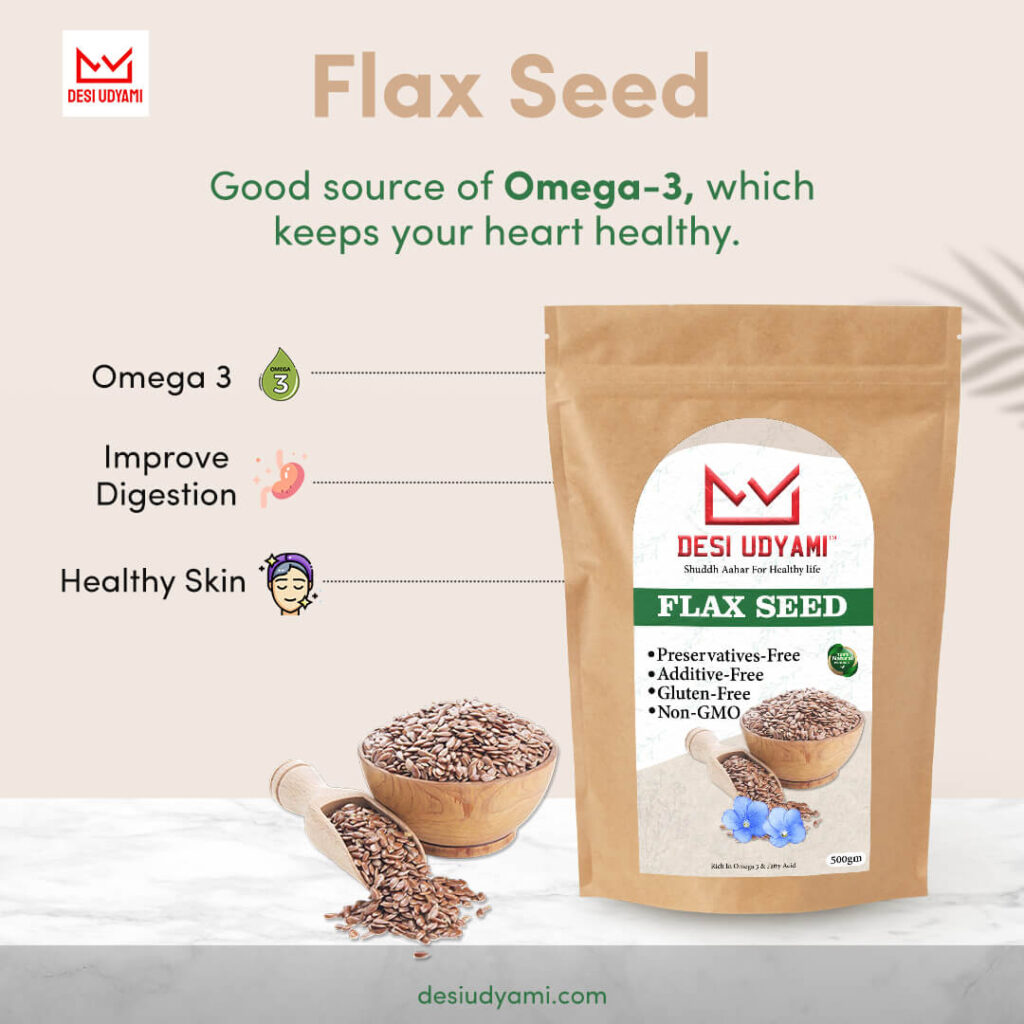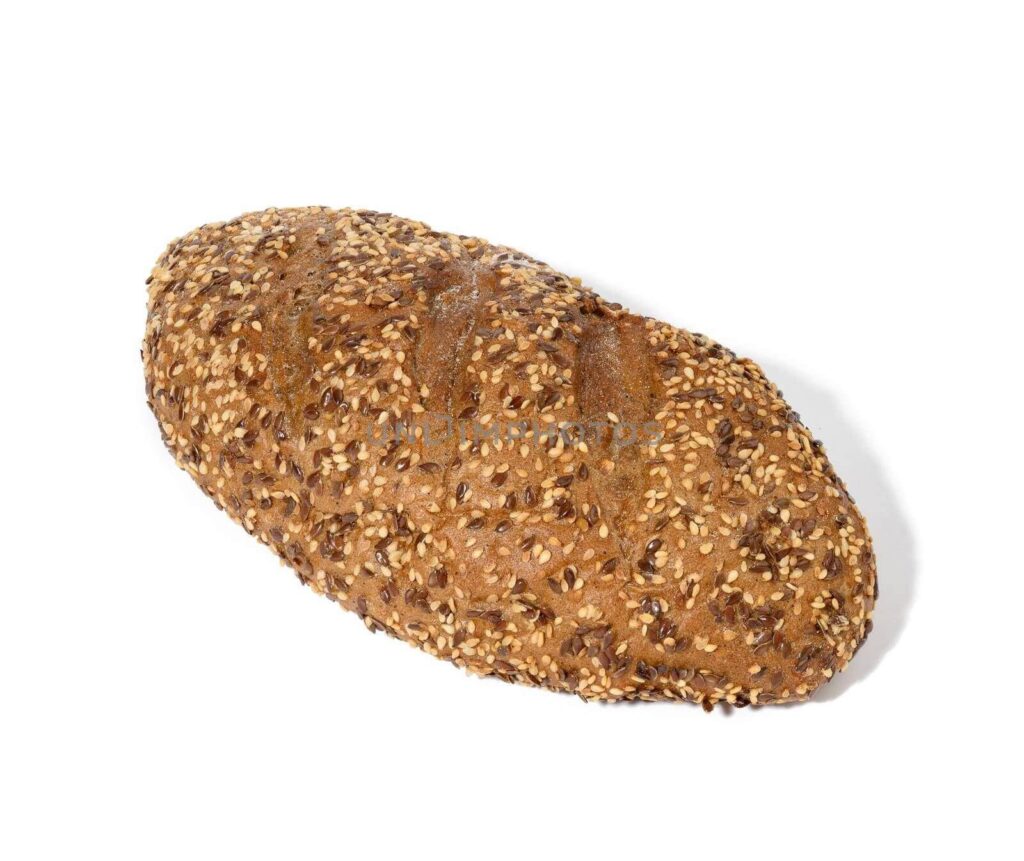Flax seed is one of the top superfoods in the world, especially in supporting heart health. It contains antioxidants, fiber, omega-3 fatty acids, protein, and lignans.
Flax seed is a healthy addition to the diet of anyone who wants to lose weight, reduce their risk of heart disease and live a longer, healthier life.
This blog will discuss the health benefits of flax seed, how much to eat, and how to prepare it.
Introduction:
Flax seed is a healthy addition to the diet of anyone who wants to lose weight, reduce their risk of heart disease and live a longer, healthier life. This blog will discuss the basics of flax seed, how much to eat, and how to prepare it
In this blog, we will discuss how flax seed helps with weight loss, helps maintain healthy cholesterol levels, and prevent stroke and cancer.
People are being more conscious about their health and are looking for healthy alternatives to the foods they eat.
Aside from the many health benefits of flax seed, it is also available in a wide range of forms and can be added to many different dishes.
Major Health Benefits of Flax Seed
The Health benefits of flax seed are as follows –
1. Flax seed is high in omega-3 fatty acids, which increases the immunity of the body.
2. Flax Seed is also loaded with fibre and protein, it reduces constipation.
3. Flax seed may reduce the risk of heart disease.
4. Flax seed may improve mood.
5. Flax seed may be good for the brain, too.
6. Flax seed may lower cholesterol.
7. Flax seed may boost memory.
8. Flaxseed may even help prevent colon cancer.
9. Flax seed may help you lose weight.

Flax Seed for Health
Flax seed is a small, dark brown, or golden-coloured seed derived from the flax plant. These seeds are an excellent source of omega-3 fatty acids, fiber, and lignans (phytonutrients shown to have cancer-preventative properties). For centuries, the health benefits of flaxseed have been used for various ailments, including constipation, diarrhea, stomach pain, and more.
Today, flaxseed is touted as a superfood that can help improve cardiovascular health, lower cholesterol and blood pressure, promote weight loss, and more.
Flax seed is a healthy addition to the diet of anyone who wants to lose weight, reduce the risk of heart disease and live a longer, healthier life.
Flax seed is great for those who want to be healthy, and it’s also great for those who want to lose weight, but it’s not exactly a miracle food, at least not in the form most people eat it.
If you are looking for the health benefits of flax seed, you need to eat it raw and grind.

How Much Flax Seed to Eat
Flaxseed may be the most beneficial food you can add to your diet. Not only is it rich in fiber, but it is also high in omega-3 fatty acids, various minerals, and fiber.
It’s also good for reducing your heart disease, cancer, and diabetes risk.
Since it is high in fiber and omega 3, it also benefits weight loss.
People who eat flaxseed have less weight gain than those who don’t eat flaxseed.
How Much Flax Seed is Safe to Eat
People should know how much flaxseed to eat in a day because consuming too much flaxseed can cause gastrointestinal issues such as bloating and constipation.
A moderate amount is defined as 1-2 tablespoons per day. It is also important to note that flaxseed contains high levels of fiber, which can cause these issues if not eaten in moderation.
If you are going to eat flaxseed, it is important to drink plenty of water throughout the day to avoid these issues.
If you are pregnant or breastfeeding, it is advisable to speak to your healthcare provider before consuming flaxseed, as there is a lack of research on the safety of flaxseed during these times.
What does Flax Seed Contain?
Flaxseed is a rich source of fiber, omega-3 fatty acids, and phytochemicals called lignans.
Fiber helps make you feel full. Omega-3s may protect your heart and lower your cholesterol.
And phytochemicals are natural chemicals in plants that have antioxidant and anti-inflammatory properties. Flaxseed is one of the highest plant sources of omega-3 fatty acids.
How to Eat Flax Seed for the Most Health Benefits
There are many ways to eat flax seeds for the most health benefits. One way is to eat them whole.
This allows for the most nutrients to be absorbed into the body.
Another way is to grind them up and add them to food.
This helps to increase the nutrient absorption rate.
Additionally, flax seeds can be taken in capsule form.
This is a convenient way to get nutrients without eating the seeds themselves.

Can You Eat Raw Flax Seeds?
I know you’ve probably heard the term “raw food diet” thrown around a lot, but it may not necessarily mean what you think it means.
Some people think of raw food diet as one in which you eat only raw, unprocessed foods and nothing else.
But it doesn’t have to be that strict. A raw food diet can also include foods that have been minimally processed, such as steamed vegetables or salads with just a few ingredients.
The key is that the raw food diet is one that includes some form of whole, raw food.
Conclusion
Flax seed is not only extremely high in omega-3 fatty acids, but is also a great source of fiber, minerals, and protein.
Some people still feel that flax seed has a laxative effect, which is false.
It is a rich source of fiber that is very beneficial for digestion.
If you consume a tablespoon of ground flax seed daily, you will experience numerous benefits, such as increased energy, healthy skin, and a healthy metabolism.
However, remember that it should be used in small amounts because consuming too many seeds will cause gas and bloating.
FAQ
How do You Eat Flax Seeds?
Everyone asks how to eat flaxseeds. One popular way is to grind them up and add them to smoothies or yogurt.
This helps add some extra fiber and nutrients to your diet.
Another way to eat flax seeds is by sprinkling them on salads or other dishes.
This provides a crunchy texture and a nutty flavour.
Lastly, flax seeds can be eaten whole. This is a good option if you are looking for a quick snack. Just be sure to chew them well, so you don’t choke on them.

Can you eat raw flaxseeds?
Yes, you can eat raw flax seeds. They are a good source of fiber and protein and contain omega-3 fatty acids.
However, they can be hard to digest if you eat too many flax seeds at once, so it’s best to start with a small amount and gradually increase your intake.
Flax seeds can also be ground into a meal or flour, which makes them easier to digest.
Should flax Seed be soaked before eating?
There is some debate over whether should flaxseed be soaked before eating or not.
Some people believe that soaking flaxseed helps to release nutrients and makes them more easily absorbed by the body.
Others believe that soaking is unnecessary and that the flaxseed can be simply eaten.
Can flax Seed be eaten daily?
The FDA recommends that flaxseed be consumed no more than two tablespoons daily.
Although there isn’t a consensus on what percentage of flaxseed should be used daily, many health experts recommend a lower amount, like 1 to 2 tablespoons, per day.
It’s best to start slowly when introducing new foods to your diet, but flaxseed is a very nutritious food.
Who Cannot eat flax Seed?
Flaxseeds contain lignans (a phytochemical) that can interfere with the absorption of some prescription medications, including estrogen-based birth control pills and heart drugs called statins.
Please read our next article – Cotton Pads for Periods: A Blog on Crazy Benefits of Sanitary Pads.
